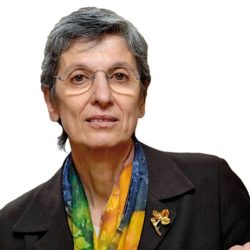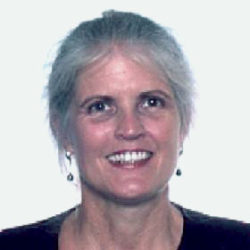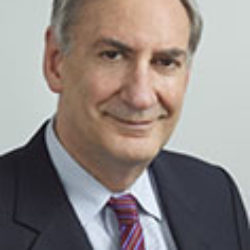SASE received a record number of submissions for mini-conference themes this year. We are pleased to announce those selected for our 2013 annual meeting!
Submissions to the SASE conference must be made through one of the mini-conferences below (or through a research network). Paper and session abstracts as well as full papers for grant, prize, and stipend applications must be submitted to all networks by January 14, 2013. Candidates will be notified by February 15, 2013. Please note that mini-conferences require an extended (~1,000 word) abstract, and ask that you submit a full paper by June 1st. For further information, please contact the organizer of the mini-conference to which you are submitting.
Mini-conferences are based around a selected number of focused themes, and have open submissions for panels and papers, based on an extended abstract (approx. 1000 words). Each mini-conference will consist of 2 to 6 panels. Each panel will have a discussant, meaning that selected participants must submit a completed paper by June 1st. If a paper proposal cannot be accommodated within a mini-conference, organizers will forward it to the program committee, who will pass it on to one of the networks as a regular submission.
Cities in Crisis: The Urban Political Economy of the Global Recession
detailed info Ugo Rossi
Ugo Rossi

Ugo Rossi is ‘university researcher’ in the department of Economic-Social Sciences at the University of Turin, Italy. After obtaining his doctorate in human geography from the University of Naples “L’Orientale” in 2003, he held research and temporary teaching positions in various universities, including the University of Amsterdam, the Johns Hopkins University and the University of Cagliari in Italy, where he has been based for five years until early 2012 before getting his current faculty position in Turin. His main research interest is in the politics of urban and regional economic development, i.e. the way in which the transformations of capitalism are reflected in the strategies of urban and regional regeneration and growth. At the empirical level, his work has touched upon a variety of issues, including post-Fordism and new regionalism, the politics of multiculturalism and the creative city, the restructuring of port-cities in the Mediterranean, the uneven urban responses to the global economic crisis. He’s co-editor of the new Dialogues in Human Geography journal and the co-author of Urban Political Geographies. A Global Perspective (2012, Sage).
 Manuel Aalbers
Manuel Aalbers

Manuel B. Aalbers, a human geographer, sociologist and urban planner, is assistant professor at the University of Amsterdam (the Netherlands). Starting February 2013 he is associate professor of Human Geography at the University of Leuven (Belgium). From January 2007 till August 2008 he was a post-doc researcher at Columbia University, New York. Previously, he was a guest researcher at New York University, City University New York, the University of Milan-Bicocca and at the University of Urbino (Italy). His main research interest is in the intersection of housing and finance. He has published on redlining, social and financial exclusion, urban policy, gentrification, the privatization of social housing, financialization, and the Anglophone hegemony in academic research and writing. He is the author of a book titled Place, Exclusion and Mortgage Markets (Wiley-Blackwell, 2011) and the editor of Subprime Cities: The Political Economy of Mortgage Markets (Wiley-Blackwell, 2012). He is the associate editor of the Encyclopedia of Urban Studies (2010), the guest editor of special issues of the International Journal of Urban and Regional Research (2009; 2013) on respectively mortgage markets and neoliberalism, and City (2012) on red-light districts, and associate editor of geography journal TESG.
This mini-conference seeks contributions that address the following thematic strands, although we will consider contributions exploring other, related questions:
- Cities and late neoliberalism: ‘late neoliberalism’ is understood here to mean a specific form of neoliberalism structurally permeated by a multidimensional condition of crisis; most notably, crises of legitimation (discursive-moral crisis), accumulation (economic-capitalist crisis), governance (political-administrative crisis). How are reactions to these multiple crises reshaping the urban experience in societies across the globe? How can this help us rethink the political economy of capitalist develoment and the way in which neoliberalism is commonly understood?
- Cities and the austerity-growth dialectic: in times of crisis, municipal governments are expected to implement austerity measures while simultaneously devising strategies of economic regeneration. How do urban political and economic elites deal with this apparent contradiction? What adaptation mechanisms, governance strategies and institutional capacities are being deployed in this context?
- Cities and financialization: the financialization of home, infrastructure and, more broadly speaking, urban re/development, were distinctive features of the expansionary era of neoliberalism. Post-credit-crunch city landscapes have been marked by foreclosures, repossessions, and ghost residential spaces, as well as overleveraged local governments and looted municipal treasuries. How are local governments, urban residents, and the housing sector responding to the disastrous failures of financialization?
- Cities and alternative models: cities can be spaces of despair, but cities can also be spaces of hope in which grassroots experiments may mature and eventually transcend the local context. If it is true that challenges to hegemonic models rise from alternative models at the local scale, what role can and do specific cities and communities play in such alternative models? How do city residents and local governments try to work outside the box of late neoliberalism?
Social Protection Transformations, Development, and the Role of the State around the World: Challenges, Drivers, and Responses
detailed info Camila Arza
Camila Arza

Camila Arza is research fellow at National Scientific and Technical Research Council in Argentina. She specialized in comparative social welfare and social security policy in Latin America and Europe. She has edited Pension Reform in Europe: Politics, Policies and Outcomes (with M. Kohli, Routledge 2008), and has published articles in academic journals including World Development, Journal of Economic History, Journal of Latin American Studies, International Journal of Social Welfare and International Social Security Review. She holds a PhD from the London School of Economics and has conducted research projects on comparative social policy funded by several local and international research agencies. Her current research deals with the reconfiguration of welfare regimes in Latin America following the expansion of non-contributory benefits for unprotected individuals and families.
 Matteo Jessoula
Matteo Jessoula

Assistant Professor of Political Science and Comparative Welfare States at the Department of Social and Political Sciences of the University of Milan, he also the coordinator of the Laboratory of Comparative Politics and Political Philosophy (LPF) at Centro Einaudi, Turin. His main research interests are pension policy, labor market and social assistance policies. He has published several articles and book chapters; among his recent publications, the volumes Labour Market Flexibility and Pension Reforms (edited with K. Hinrichs, Palgrave Mc Millan, 2012), The Roots of the Italian Welfare State (with M. Ferrera and V. Fargion, Marsilio 2012, in Italian) and Pension Policy (Il Mulino 2009, in Italian).
 Stefano Sacchi
Stefano Sacchi

Assistant professor of Political Science at the University of Milan and affiliate at the Collegio Carlo Alberto of Turin, Italy, where he directs the Master in Public Policy and Social Change. His research focuses on the processes, conditions and outcomes of making and implementing social rights in advanced democracies, and the EU. He has recently co-authored The Political Economy of Work Security and Flexibility (Policy Press, 2012).
 Clemente Ruiz Durán
Clemente Ruiz Durán

Clemente Ruiz Durán holds a PhD in Economics from Pittsburgh University (1975) and a Masters from the University of Uppsala, Sweden (1971). In 2004 he received the doctor Honoris Causa at the University of Baja California. He currently serves as a full-time professor at the Faculty of Economics of the National Autonomous University of Mexico (UNAM) and member level III of the National System of Researchers (SNI). He has written more than 120 papers, author of 17 books and coordinator of 10, with works such as “Targeting policies and structural requirements to reduce informality” in the book coordinated by Martínez Soria titled “Informality:legislative implications and public policies to reduce it”. He has collaborated with international institutions such as United Nations Conference on Trade and Development (UNCTAD), Inter-American Development Bank (BID), United Nations Economic Commission for Latin America and the Caribbean (CEPAL) and World Bank. He has collaborated with national institutions such as Ministry of Labour and Social Security (Secretaría del Trabajo y Previsión Socia, STPS), Ministry of Social Development (Secretaría de Desarrollo Social), Ministry of Economy (Secretaría de Economía), Ministry of Public Education (Secretaría de Educación Pública), National Savings Bank (Banco del Ahorro Nacional), among others. His main research lines are the following:
- Regional development, taxation and democracy
- Complexity, and economic diversification
- Mexican economy
- Labor economics
- Informal labor markets
- Migration
- Industrial Policy
- Financial inclusion
 Flavio Gaitán
Flavio Gaitán
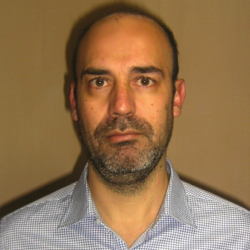
Flavio Gaitan is a Post doctoral fellow IESP-UERJ (Institute of Social and Political Studies, State University of Rio de Janeiro), PhD IUPERJ (Research University Institute of Rio de Janeiro), Researcher of INCT-PPED (National Institute of Science and Technology “Public Policies, Strategies and Development”). He has published articles in Journals and book chapters. His areas of interest include developmental state, development strategies, social protection, articulation between production regime and welfare state and role of strategic elites in dynamics of development. Among his latest publications are Legacies of excludent development: inequality and poverty in peripheral South American capitalism (in Arzate Salgado, Gutierrez & Huamán, Poverty Reproduction in Latin America, CLACSO-CROP, 2011) and Politics and Development: Lessons from Latin America (with Renato Boschi, in Boschi & Santana,Development and semi-periphery, Anthem Press, 2012).
 Moises Balestro
Moises Balestro

Moisés Balestro holds a PhD in Social Sciences from the University of Brasília. He is an Associate Professor at the University of Brasilia in the Graduate Program of Comparative Studies on the Americas at the Department of Latin American Studies. He was a visiting scholar at the Institute of Political Science at Goethe Universität (2014-2015). As a researcher in the area of economic sociology and political economy, he leads a Comparative Studies of Economic Sociology research group at the Brazilian National Research Council. His areas of interest are diversities of capitalism with special emphasis on the Global South, innovation and development, and social construction of markets. He has articles in journals and book chapters on state and development, innovation, political economy of agribusiness and rural development. He is also a researcher at the National Institute of Science and Technology in Public Policy, Strategy and Development (INCT/PPED), and is linked to the line State, Varieties of Capitalism and Development Policies in Emerging Countries, especially the BRICS. Recently, he carried out a project funded by the Brazilian CAPES together with the German DAAD on the lessons from Germany to the institutional determinants of the Brazilian technological learning and another on the role of ideas in the coordination of industrial policies in Brazil.
Over the past three decades, the socio-demographic and economic conditions underpinning the expansion and consolidation of welfare systems have changed considerably. Family structure, gender balance, inter-generational relationships, and the age pyramid have all been transformed in ways that affect welfare arrangements dramatically – both those in place and those in the making. Production systems have changed and the economy become more tertiary and more global, while labor markets have become increasingly flexible and informal, altering employment patterns and workplace organization. International and supranational institutions have gained strength and influence, and are able to influence domestic political debates and governmental policy choices. At the same time, emerging economies have grown faster than any others world wide, reducing poverty and creating opportunities to remake the state in East Asia and Latin America. The result, one might say, has been less welfare for advanced capitalist countries and more welfare for emerging economies.
This mini-conference seeks contributions that examine such transformations across the globe – their consequences for social protection as well as subsequent policy responses – with particular reference to social security, social assistance, labor market policies, and social services (including health and care policies). What kinds of strategies and policy options have predominated and with what impact? Which factors can explain differences across countries? What has been the role of economic conditions, fiscal space, corporatist arrangements, and democratic record (among other relevant socio-political, institutional, fiscal and economic factors) in shaping specific policy options? What role have international organizations played with regard to the state in promoting social policy reforms, and with what ideological orientations? How have policies set to address new gender issues in social and labor market incorporation? Are there new distributional coalitions underpinning current policy arrangements? Has the economic crisis been a catalyst for change or has it reinforced traditional patterns of social protection?
More broadly, papers should address one, or more, of the following topics: a) the relationship between labor market transformation and social protection and the “decoupling” of the two; attempts at maintaining the integrative function of the welfare state; b) welfare state sovereignty, autonomy, and capacity, the impact of these on social protection; c) the politics of change to social protection (retrenchment, expansion, and adaptation) across the globe, with focus on the role of ideas, ideology, and political competition, as well as the emergence of coalitions advocating for change in social protection arrangements; (d) changes in the production systems that support the welfare system.
Although papers may focus on national cases from Western countries, Latin America, or Asia, we particularly welcome comparative papers that address these issues in different countries, both within and across continents, as well as those focusing on conceptual or methodological issues.
The Political Economy of Skills and Inequality
detailed info Marius Busemeyer
Marius Busemeyer

Marius Busemeyer (*1978) is Full Professor of Political Science (with a focus on Policy Analysis and Political Theory) at the University of Konstanz, Germany. Busemeyer studied political science, economics and public law at the University of Heidelberg. In 2006, he received his PhD (Dr. rer. pol.) in Political Science from the University of Heidelberg as well. His dissertation identifies structural, political and institutional determinants of education spending in OECD countries with a particular focus on the case of the United States. From 2003 until 2005, Busemeyer was enrolled in the MPA program of the Harvard Kennedy School, Cambridge, MA, as a McCloy-Fellow of the German National Merit Foundation. Between 2006 and 2010, Busemeyer was a researcher at the Max Planck Institute for the Study of Societies in Cologne, Germany, working with Kathleen Thelen and Wolfgang Streeck in a research project studying the dynamics of institutional change in the German vocational training system. His research focuses on comparative political economy, welfare states, public spending, social democratic parties and theories of institutional change. He recently edited a volume (with Christine Trampusch) on the “Political Economy of Collective Skill Formation” (OUP, 2012). He has published in journals such as the Socio-Economic Review, the British Journal of Political Science, the British Journal of Industrial Relations and the European Journal of Political Research.
 Torben Iversen
Torben Iversen

Torben Iversen is Professor of Political Economy in the Government Department at Harvard University. His research and teaching interests include comparative political economy, electoral politics, and applied formal theory. He is the author of Capitalism, Democracy, and Welfare (CUP 2005), Contested Economic Institutions (CUP 1999), coauthor (with Frances Rosenbluth) of Patriarchy Explained: The Rise and Fall of Gender Inequality (Yale UP, 2010), and co-editor (with Jonas Pontusson and David Soskice) of Unions, Employers and Central Bankers (CUP 2000). He is also the author or co-author of more than three dozen articles on comparative politics and political economy in leading journals and edited volumes. He has been a Hoover National Fellow and a Guggenheim Fellow, and his work has won numerous prizes including APSA’s Victoria Schuck Award for the best book published on women and politics, the Best Book on European Politics and Society Award, the Luebbert Best Article Award, and the Gabriel Almond Best Dissertation Award. He is currently completing a book with David Soskice on the historical coevolution of capitalism and democracy.
Rising socio-economic inequality is a common trend across advanced industrial democracies and its causes and consequences are still poorly understood. Certainly, the recent economic crisis has exacerbated the trend, in particular in countries most affected by the crisis, but the increase set in much earlier in the 1980s and even before. Nor is this trend simply explained by a return to markets because there has not been large-scale retrenchment of established welfare states.
In their influential book The Race between Education and Technology, Goldin and Katz (2008) provide an authoritative economic explanation for the US case based on the crucial role of skill formation and technological change. From this perspective, the recent rise in inequality can be explained by the interaction between skill-biased technological change and the relative decline in the supply of high-skilled workers. Technological change (potentially reinforced by economic globalization) leads to rising demand for high-skilled workers, while the number of high-skilled university graduates appears to have reached a limit after several decades of educational expansion. The result is a sharp rise in inequality.
The purpose of this mini conference is to question and “contextualize” this important, but also narrow economic perspective. First, the Goldin-Katz evidence shows convincingly that much of the increase in wage inequality in the US is due to investment in education not keeping up with demand, but they do not explain why governments are not filling this gap. Nor can they explain why this trend is much less important, or even absent, in other countries. Second, the Goldin-Katz analysis does not take into account the role of socio-economic institutions, in particular skill formation and collective wage bargaining institutions, that influence the quantity and quality of skill supply, as well as the demand for skilled workers. This is almost certainly an important component in explaining cross-national variation in inequality. Third, institutions that affect demand and supply are (implicitly) treated as exogenous, but policy-makers and organized interests can (and do) deliberately engage in institutional design of skill formation systems in order to influence the supply of skills. Fourth, the authors do not explain why governments do not compensate for rising inequality through more redistributive taxes and transfers. Finally, Goldin-Katz do not have much to say about the long-run consequences of inequality on political power, and hence the possibilities for future spending and redistribution.
What we seek, then, are “thick” political-institutional explanations of the observed rise in inequality, the cross-national variance in this rise, and the different forms that growing inequality has taken. Contributions may address questions such as the following:
1.) Causes of inequality: The Goldin-Katz argument is largely based on the case of the United States, which may have contributed to its neglect of other types of skill formation systems. It also has little to say about forces of change such as post-industrialization and globalization. We therefore welcome contributions that analyze the link between structural transformations, skill formation, labor market and welfare state institutions and inequality from a broadly comparative perspective. To what extent does the institutional set-up of the political economy influence the supply and demand of skills and what are the implications for inequality? The focus should largely be on advanced industrial democracies, though we may also consider comparisons with emerging market economies and developing countries.
2.) Consequences of inequality: The rising trend in inequality has deep implications for the future development of political economies and representative democracy in general. One prominent counter-hypothesis to Goldin and Katz is that the recent increase in inequality reflects the weakening political power and influence of individuals in the lower half of the income distribution. Thus, we are interested in how the rise in inequality affects the political economy of redistribution. Again, we value a broadly comparative perspective (across countries and/or over time). Does inequality affect patterns of political participation and mobilization as well as party competition? Is this effect of inequality mediated by political and socio-economic institutions? How are citizens’ perceptions and preferences with regard to the welfare state and redistribution affected?
3.) Micro-macro linkages and feedback effects: Recent research on policy feedback emphasizes the impact of policies and institutions on the micro-level of individual attitudes and policy preferences. We welcome papers that apply this perspective to the study of skills and inequality. How do welfare state institutions and past levels of inequality influence popular support for redistribution? What is the role of public opinion as a driver of welfare state change? To what extent do educational institutions have effects on redistributive preferences?
We welcome papers from all methodological perspectives (qualitative and quantitative). However, papers should have a broadly comparative perspective, and we value theoretical as much as empirical rigor.
Dealing with Immigration in Times of Economic Crisis
detailed info Ana María López-Sala
Ana María López-Sala

Ana María López-Sala, Ph.D in Sociology, M.A in Security Studies, and Research Fellow at Institute of Economics, Geography and Demography, Spanish Council for Scientific Research (CSIC). Her research interests deals around comparative immigration policies. She is the author of Immigrants and States: the political response to migration (Anthropos, Barcelona, 2005) and has published (with Anguiano, M) Migration and Borders (Icaria and CIDOB, Barcelona, 2010). She is a member of LINET (Independent Network of Labor Migration and Integration Experts, IOM and EC) and was a Resident Rockefeller Fellow at Bellagio (2010). Currently, she is a member of « Transnational Immigrant Organizations Network » (Princeton University) and researcher in charge of “Circular Project” (Temporary migration, Recruitment in origin policies and Circular Migration: the case of Spain).
 Dirk Godenau
Dirk Godenau

Dirk Godenau is Professor at the Department of Applied Economics, La Laguna University (Tenerife, Spain). He conducts research on labor migration, economic dimensions of migration, local labor markets, and migration and insularity. Scientific director of OBITEN (Observatory of Migration in Tenerife) and Spanish team coordinator of “Treatment of third-country nationals at the External borders of Europe” (ICMPD) and “Demographic and migration trends in ultra-peripheral regions in Europe: economic, social and territorial cohesion” (INED). He is the author of “Irregular migration in Spain since the turn of the millennium: development, economic background and discourses” (Migration Research Group Hamburgisches WeltWirtschaftsInstitut, 2010); “An Institutional Approach to Bordering in Islands: The Canary Islands on the African-European Migration Routes” in Island Studies Journal, Vol. 7, No. 1, (2012) and “Labour market integration of immigrants in times of economic crisis in Germany and Spain: same crisis, different effects” (Comparative Population Studies, forthcoming).
Crises impact migration directly, through changing labor market needs, and indirectly, through changes in related policies. The mini-conference, Dealing with immigration in times of economic crisis, will center on induced change in policies and social institutions, not on general changes in migration patterns during the economic crisis. The leading question will be if and how migrants and foreign resident populations are affected by crisis-related changes in policies. The focus on policies does not mean analysis will be limited to specific (migration) policies, as indirect impacts through labor market reforms and social policies (health, education) will also be included.
In order to gain a systematic overview of induced policy change concerning immigration, we established four panels (Labor market, Integration, Public Opinion, and Migration policies) and several research questions to be addressed. Each panel will have a discussant, meaning that selected participants must submit a completed paper in advance, by June 1, 2013.
A. Labor market panel
Do structural reforms improve or worsen the working conditions of migrants? Are changes in employment policies used for fostering return migration? Is policy change selective in terms of high or low skilled migration? If more and better job opportunities are available in other countries, is induced labor mobility frequent among the foreign resident population?
B. Integration panel
Active integration policies are even more important during economic crises, as many immigrants face higher risks of unemployment, lower salaries and social exclusion. At the same time, public budget cutbacks and increasing expenditures in general social policies may put integration efforts under pressure. How do states handle this dilemma? And if so, do they change their priorities in a selective way or simply decide to keep the formal policy basis and reduce resources lineally?
C. Public opinion panel
Are changes in public opinion considerably different between immigration countries during the present economic crisis? Are these changes fostered by political parties? Does public opinion react particularly in economic terms (e.g. job competition) or more by stressing cultural differences in general (e.g. religion)?
D. Migration policies panel
Do immigration countries change their migration policies or do they keep them formally while changing how they are implemented and reinforced? Is irregular migration dropping, and if so, is this drop due to policy changes or simply a result of market forces? As the impact of the economic crisis on national labor markets is unequal, is irregular migration channeled through new migration routes?
Public Sector Retrenchment and Restructuring: Implications for Public Service Workers and Work
detailed info Patricia Findlay
Patricia Findlay

Patricia Findlay is Professor of Work and Employment Relations and Director of the Scottish Centre for Employment Research at the Department of Human Resource Management at the University of Strathclyde in Glasgow. She is currently working on a number of research projects relating to public sector workers: with Commander, Lindsay and others she is researching technological change and job quality in NHS pharmacy services; with Findlay and Stewart she is studying occupational pay for public sector professionals; and with Findlay and Commander she is researching female academic careers. She is co-editor with Chris Warhurst, Chris Tilly and Francoise Carre of Are Bad Jobs Inevitable? (Palgrave, 2012). With Commander (and Warhurst, Keep and Lloyd), she co-organized an ESRC-funded seminar series on ‘Making Bad Jobs Better’ (www.makingbadjobsbetter.org.uk). She works closely with trade unions and other organizations in developing effective approaches to skills and learning. She is a member of the editorial board of the Industrial Relations Journal, a former editorial board member of the journal Work, Employment and Society, a member of the ESRC Peer Review College and a lay member of the Employment Tribunal Service.
 Colin Crouch
Colin Crouch

Colin Crouch is Professor Emeritus at Warwick Business School in the UK. He is an economic sociologist, with particular interests in international comparative research at the interface between sociology, politics and the study of work and employment. His writings in comparative political economy constitute a programme of comparative analysis of the regulation of work and employment, the structure and behaviour of organised interest groups, and national governance regimes. He was previously Professor of Comparative Social Institutions at the European University Institute, Florence, and has also held academic positions at Oxford University and LSE. He is a Fellow of the British Academy, member of the Academy of Social Sciences, External Scientific member of the Max Planck Institute for Social Research at Cologne, and a former president of SASE.
 Johanna Commander
Johanna Commander

Johanna Commander is a Research Fellow with the Scottish Centre for Employment Research (SCER) within the Department of Human Resource Management, University of Strathclyde Business School. She has published on numerous projects including the work and undervaluation of school classroom assistants (with Warhurst, Nickson, Gilbert and Hurrell), the impact of capital relationships and lean production on job quality in the supermarket supply chain (with Newsome and Thompson), and the deployment of graduate skills in the ‘graduatised industry’ of UK estate agency (with James, Warhurst and Tholen). Other work has focused on the aesthetic skill requirements of retail workers (with Warhurst and Nickson), and the low-waged work and employment of hotel room attendants as part of the RSF Low-Wage Work in the UK project. She co-organized the ESRC seminar series on ‘Making Bad Jobs Better’ 2009-11 and more recently worked with Findlay on research commissioned by the STUC looking at the role of unions in effective skills utilisation. Current work includes the impact of lean technologies on job quality in the NHS (with SCER), and the capacity within Scottish companies to engage in human resource development (with SKOPE, Universities of Oxford and Cardiff). She is also undertaking her doctoral research which examines strategic approaches to managing and developing workers in the creative industries.
Throughout Europe, the 2008-09 crisis and austerity measures thereafter have heralded significant change in public sector employment, including substantial job losses, pay freezes, and measures to restructure pension provision. While economic crisis has accelerated the pace of change, in many countries public service workforces had already been re-shaped in response to the discourses of ‘new public management’ and ‘lean’ production.
This stream will bring together contributions analysing what is happening to public sector work, particularly focusing on the impact of the crisis on the labour process of public service workers and the quality of public service employment. We welcome both conceptual and empirical papers from a range of academic disciplines, as well as from policy-makers and practitioners. Research questions might include (but are not limited to):
- What is happening to human capital development and skills formation for public sector workers?
- Is work intensifying in public service organisations for those left in employment?
- How are human resource policies, including closer attention to performance management, impacting on worker effort and experience in the public sector?
- How might employees’ experiences of work be affected by the challenges in reconciling producer and consumer priorities in public service delivery?
- How have the introduction of ‘Lean’ reforms and other NPM-oriented strategies affected employees’ roles and experiences of job quality in a period of austerity?
- What strategies are workers adopting to resist or influence changes in their nature of their work, and how effective are these strategies proving to be?
Professions in Crisis
detailed info Leonard Seabrooke
Leonard Seabrooke

D: Professions and Professionals in a Globalizing World
Leonard Seabrooke is Professor of International Political Economy and Economic Sociology in the Department of Organization at the Copenhagen Business School, and Research Professor at the Norwegian Institute of International Affairs. Len’s research focuses mainly on transnational professionals, international organizations, activist movements, and consultancy communities on a range of politico-economic issues. Seabrooke’s work has featured in American Sociological Review, Annual Review of Sociology, Socio-Economic Review, Review of International Political Economy, and many other journals. His most recent book is Global Wealth Chains (co-edited with Duncan Wigan, Oxford University Press 2022).
States seek to avoid and manage social and economic crises by delegating control over services and oversight to professions and professionals. This happens over a wide range of issue-areas, from health care to law, and professional groups, from educators to financial regulators and economists. At the national level, states legitimate and protect many professions by guarding standards and access. At the international level, we find an extension of national dynamics, including how professionals staff international organizations. By contrast, at the transnational level we see the rise of professional groups that operate under the radar, or beyond the control, of the state. Transnational professionals have been active in transforming much of the wiring of capitalist enterprises that make crises more likely, as well as mounting campaigns to point out unprofitable and unpopular potential crises.
This mini-conference talks to the theme of ‘professions in crisis’ in two senses. The first crisis is an immediate, ‘fast-burning’, crisis that induces a period of high uncertainty, leading professionals to battle over solutions against a background of increased political salience of the issues at hand. The recent financial crisis, for example, highlighted professional conflicts among groups seeking regulatory solutions, and also brought to surface brewing tensions between increased market-based pressure on professional groups and what the state (and taxpayer) is willing to pay for. Professionals can use professions as a resource and source of mobilization during periods of high uncertainty, with important consequences for the scope and depth of regulation across a range of issue-areas.
The second crisis is a prolonged one, a ‘slow-burning’ crisis that professionals work to highlight but are unable to gain the political attention. For example, transnational groups of demographers and health professionals point to intensifying long-term socio-economic pressures on societies and the fiscal purse. At the same time, other transnational professional groups are devising ways of hiding money away from that same purse. Many professionals are ‘scaling up’ to the transnational level, involving new forms of organizing and institutionalizing.
This mini-conference explores professions in crisis and brings together a number of leading scholars in economic sociology, political economy, organization studies, and international relations. Themes to be addressed by the proposed papers include:
1. Professional competition and coordination to address short and long-term socio-economic problems;
2. The rise of transnational professions and hybrid and quasi- professions;
3. The relationship between change in professions, professionals, and professionalisation and change in organizational and institutional forms associated with the state and modern capitalism.
The Transformation of Higher Education Systems at a Time of Economic Crisis
detailed info Christine Musselin
Christine Musselin

Christine Musselin is the director of the Centre de Sociologie des Organisations, a research unit of Sciences Po and the CNRS. She leads comparative studies on university governance, public policy in higher education and research, state-university relationships, and academic labor markets. Two of her books, La longue marche des universités françaises (published by the P.U.F in 2001) and Le marché des universitaires, France Allemagne, Etats-Unis, were published in English translation by Routledge in 2004 and 2009, respectively. She was a DAAD fellow in 1984-1985 and a Fulbright and Harvard fellow in 1998-1999. She is co-editor of Higher Education and a member of the editorial board of Sociologie du Travail.
Both the political economy and the neo-institutionalist literatures have so far paid little attention to the transformation of Higher Education (HE) systems. This is especially surprising at a time when, on the one hand, capitalist systems are experiencing a major crisis that affects all sectors including higher education and research, and, on the other hand, higher education and research systems are expected to produce, transfer and diffuse knowledge that can fuel (refuel) advanced economies.
Furthermore, the last thirty years have seen a globalization of HE which has taken the form of a world-wide diffusion of the Western type of tertiary institutions, while Universities in Europe have undergone enormous transformation. Overall, changes which have taken place in this field are connected to the increasingly crucial role of HE systems in advanced economies and are basically ways to respond to pressing needs for greater openness of these systems to the external environment.
A first general question for this mini-conference is, therefore, the following: how can the study of HE systems – of their recent dramatic changes as well as their persisting differences – be highlighted by using broader political economy views of the relations between state and market, including the international capitalist crisis and the transformation of institutions developed at an earlier stage?
A second broad question concerns the driving forces and the constellations of actors responsible for the deep transformation of HE systems and institutions in the last decades. Do the differences between national systems and between universities within a national system persist, suggesting that institutional contexts and power relations matter, or is a general process under way leading to a global market of HE? In the latter case, what is the role of public actors in the emergence of global reforms (such as the Bologna Process) and the development of similar policy instruments (such as policies for excellence) and how can these forms of public intervention effectively reduce national divergences? These questions hold for Western countries but also for emerging ones.
In fact, HE has not just been deeply transformed; it has undergone a process of globalization, which leads us to the third general question. What structural factors and power relations can we detect under this process of globalization? What issues does it affect: curricula? Research agendas and methods? Academic labour markets? Higher education and research policies? The way HE and research institutions are run and structured?
Finally, the consequences of these transformations should be addressed: do they affect the national innovation systems and do they meet the needs in competences and knowledge of contemporary societies? Do they transform the relationships between higher education, research and society? Do they participate to the increase/reduction in inequalities among groups and/or territories?
Economic Culture in the Public Sphere
detailed info Lyn Spillman
Lyn Spillman
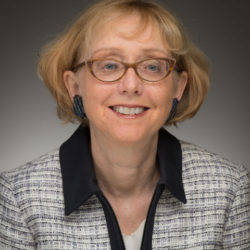
Lyn Spillman is Professor of Sociology at the University of Notre Dame. Her interests include economic, cultural, and political sociology and she is author of Solidarity in Strategy (University of Chicago Press, 2012) and Nation and Commemoration (Cambridge University Press, 1997), and editor of Cultural Sociology (Blackwell, 2002) as well as numerous articles and chapters on economic culture, collective memory, and qualitative methods, including most recently “Professionalism as a Cultural Form,” Journal of Professions and Organizations (2018) (with Sorcha Brophy). She is Co-Editor of Review of Social Economy and Editor of Oxford Bibliographies in Sociology.Her current research examines economic culture in the public sphere.
 Frederick F. Wherry
Frederick F. Wherry

Frederick F. Wherry is Sociology Associate Professor at Columbia University. He received a Ph.D. from Princeton University. He was awarded a Mellon Postdoctoral Fellowship in the Humanities and Social Sciences at the University of Pennsylvania before becoming an Assistant and then an Associate Professor at the University of Michigan, Ann Arbor. Hi research analyzes the cultural bases of markets, opportunity structures in cultural markets, the role of identity in shaping market decisions and opportunities, and globalization. His articles have appeared in Politics & Society (2012), Sociological Theory (2008), The Annals of the Academy of Political and Social Science (2007), Ethnic and Racial Studies (2006), Journal of Consumer Culture (2006), and International Review of Sociology (2004). He is the sole author of The Culture of Markets (2012), The Philadelphia Barrio: The Arts, Branding, and Neighborhood Transformation (2011), and Global Markets and Local Crafts: Thailand and Costa Rica Compared (2008). He is also editor (with Nina Bandelj) of The Cultural Wealth of Nations (2011). He serves on the editorial boards of American Sociological Review (2013-2016) and American Journal of Sociology (2011-2014). He also serves on the Committee on Awards for the American Sociological Association (2013-2016) and on the Viviana Zelizer Book Award Committee (2013).
 Nina Bandelj
Nina Bandelj

Nina Bandelj (she/her) is Chancellor’s Professor in the Department of Sociology, associate vice provost for faculty development, and co-director of Center for Organizational Research at the University of California, Irvine. An economic sociologist, Bandelj is interested in how relational work, culture, power, and emotions influence investment, spending, debt, inequality, and ideas about the economy. Growing up in Yugoslavia and coming of age as Eastern Europe transformed rapidly after the fall of the Berlin Wall inspires Bandelj to connect individuals’ emotions, beliefs and struggles with systemic transformations of communism, capitalism, and the global economy.
Bandelj has published numerous articles and book chapters, including in the American Sociological Review, Social Forces, Theory and Society, and Socio-Economic Review. Her books include From Communists to Foreign Capitalists: The Social Foundations of Foreign Direct Investment in Postsocialist Europe (Princeton University Press, 2008), Economy and State: A Sociological Perspective (Polity Press, 2010, with Elizabeth Sowers), Economic Sociology of Work (Emerald Publishing, 2009), The Cultural Wealth of Nations (Stanford University Press, 2011, with Frederick F. Wherry), Socialism Vanquished, Socialism Challenged: Eastern Europe and China, 1989-2009 (Oxford University Press, 2012, with Dorothy Solinger), and Money Talks: Explaining How Money Really Works (Princeton University Press, 2017, with Frederick F. Wherry and Viviana Zelizer). Her research has been funded by the American National Science Foundation, American Council for Learned Societies, and Slovenian National Research Agency, among others.
Bandelj, who received her Ph.D. from Princeton University, is past Fellow at the Center for Advanced Study in the Behavioral Sciences at Stanford, the Max Planck Institute for the Study of Societies in Cologne, and the European University Institute in Florence. She is an honorary member of the Sociological Research Association, and a recipient of the Distinguished Mid-Career Award for Service, the Dynamic Womxn Award for Academic Achievement, and the Carol Connor Equity Advisor Impact Award from the University of California, Irvine. She was awarded a life-time title of Professor at the University of Ljubljana, Slovenia.
In addition to her scholarship, Bandelj has a deep commitment to service and inclusive excellence. She has served as equity advisor and acting associate dean for research and graduate affairs in the School of Social Sciences, and as facilitator in Women’s Initiative supported by the University of California, Office of the President. In her role as inaugural associate vice provost for faculty development, she designs and oversees programs, and consults on policies in support of faculty advancement, well-being, and equity. Bandelj is finishing her term as one of the editors of Socio-Economic Review and was previously Treasurer of the Society for the Advancement of Socio-Economics. She was Vice President of the American Sociological Association for 2021-22 and is currently SASE President-Elect for 2022-2023.
As recent economic crises highlight, economic policy is a central concern of public sphere discussions. Cultural understandings of economic processes are highly consequential for economic policy formulation and legitimation. Whereas economy and culture were once considered distinct domains, social scientists now examine how economic interpretations generated by cultural processes– such as authorization, justification, categorization, commensuration, symbolization, narration, and performance– influence micro, meso, and macro-economic action. This mini-conference will assemble new contributions to our understanding of economic culture in the public sphere in order to assess how public understandings of “the economy” and economic policies are constructed and challenged.
We invite theoretical and empirical examinations of economic culture in the public sphere, especially but not exclusively, in economic crises that have increased uncertainty and human vulnerabilities across the globe. Some of the questions the mini-conference will address include the following:
- What are the processes whereby different publics have interpreted the economic crisis and have proposed solutions to it?
- How have discussions of the causes, consequences, and solutions to the crisis revealed differences in the meanings of the market for different constituencies?
- What are the political, cultural, and institutional features of public sphere discussions aimed at setting national and regional economies on firmer footing?
- In what ways are public sphere discussions reformulating economic theories about how national economies work, and how are these reformulations affecting financial legislation?
- More broadly, how are public debates over fairness, distribution, and non-economic priorities shaping labor movement strategies, corporate responses, and/ or public policies?
As states intervene through stimulus or austerity, they create and rely on public sphere discussions to justify their actions and to create confidence for the course of their actions. Likewise, as businesses confront labor unrest and public relations crises, they too face the challenge of justifying how they operate. The bases of these justifications across a variety of capitalist systems and the micro-level reactions to these crisis by labor and other social movement actors offer opportunities for fruitful comparative examinations of culture, economics, and the public sphere.
Submissions for panels will be open to all scholars on the basis of an extended abstract. Selected participants must submit a completed paper to discussant and organizers by June 1, 2013. If a paper proposal cannot be accommodated within the mini-conference, it will be forwarded to the most appropriate research network as a regular submission.
Social Change, Innovation, and Entrepreneurial Activity
detailed info Ted Baker
Ted Baker

Ted Baker is an associate professor of entrepreneurship at North Carolina State University’s Poole College of Management, and serves as Executive Director of The Entrepreneurship Collaborative (TEC). He spent the first half of his adult life in a variety of entrepreneurial ventures. His current research focuses on entrepreneurship under resource constraints (for example in the informal settlements around Cape Town, South Africa, in the textile industry in the American South and in university spin-offs) and in particular on bricolage and improvisation as constructs useful for understanding resourceful behavior and organizational resilience. His recent work builds on the social psychology of individual identity. He is Associate Editor at Strategic Entrepreneurship Journal and serves on the editorial boards of Academy of Management Review, Administrative Science Quarterly, Journal of Business Venturing and Journal of Management Studies. Ted is Representative at Large for the Entrepreneurship Division of the Academy of Management and Chairs the division’s Research Committee.
 Silvia Dorado
Silvia Dorado

Silvia Dorado is an associate professor of management at the University of Rhode Island. Her research addresses social and entrepreneurial innovation for the alleviation of complex social problems. Silvia serves in the editorial boards of Organization Studies and Journal of Management Studies and has published in Academy of Management Journal, Journal of Business Venturing, Nonforprofit and Voluntary Sector Quarterly, Journal of Development Entrepreneurship, Organization Studies, Michigan Journal of Community Service Learning, Public Administration and Development, and International Review of Administrative Science.
 Alex Nicholls
Alex Nicholls

Alex Nicholls is University Lecturer in Social Entrepreneurship within the Skoll Centre for Social Entrepreneurship at the Saïd Business School, University of Oxford. His research interests range across several key areas within social entrepreneurship, including: the interface between the public and social sectors; organizational legitimacy and governance; the development of social finance markets; and impact measurement and innovation. He is widely published in peer reviewed journals and has done consultancy work for not-for-profits, social enterprises, and the UK government. He is the co-author of a major research book on Fair Trade (with Charlotte Opal, Sage, 2005). His ground-breaking 2006 edition of a collection of key papers on the state of the art of social entrepreneurship globally was published in paperback edition by Oxford University Press in 2008. It is the best selling academic book on the subject globally. In 2010, Nicholls edited a Special Edition of Entrepreneurship, Theory and Practice on social entrepreneurship – the first time a top tier management journal had recognized the topic in this way. He is also the General Editor of the Skoll Working Papers series and the Editor of the Journal of Social Entrepreneurship. In 2011, Nicholls published a co-edited volume on social innovation. In 2012, he will publish a co-edited volume on social investment and a monograph on the politics of social entrepreneurship.
 Ana Maria Peredo
Ana Maria Peredo

Ana María Peredo is the Director of the Centre for Co-operative and Community-Based Economy and Professor of Sustainable Entrepreneurship and International Business at the Peter B. Gustavson School of Business. Ana María’s research explores the role of business in fostering sustainable communities, especially among poor and disadvantaged people. Her pioneering work introduced the concept of community-based enterprise to academic business literature, and she is committed to engaging business educators in thinking about management education in relation to problems of poverty. She has published an impressive number of articles in leading academic journals, as well as chapters in important research anthologies on community-based enterprises, co-operatives, Indigenous entrepreneurship, and social entrepreneurship. Ana María is frequently invited to give lectures and presentations in academic and community settings.
 Marc J. Ventresca
Marc J. Ventresca

Marc Ventresca is an organizational sociologist in the Strategy, Innovation and Marketing Faculty at the Saïd Business School, University of Oxford, Governing Body Fellow of Wolfson College, and Senior Research Fellow at the Centre for Technology and Management for Development. He has affiliation as Research Associate Professor of Global Public Policy at NPS. His areas of expertise include market-building, science entrepreneurship, institutional boundaries and governance, and innovation and technology strategy. His research investigates cases at the intersection of economic sociology, strategy and innovation: Market-building strategies in ecosystems services markets in Amazon Peru and for inclusive markets in Bangladesh, emerging models of venture funding and incubators, security and innovation regimes, and diffusion of governance innovations in global financial markets and in U.S. higher education. His industry expertise is based in knowledge- and -information-intensive organizations with emphasis on emerging energy sectors. Ventresca serves as a reviewer on journal editorial boards and for Oxford University Press and US NSF. His research is published in Academy of Management Journal, Journal of Business Venturing, Organization Science, Organization, Sociological Forum, Theory and Society, and other journals in management & strategy, innovation, and globalization as well as book chapters.
Contemporary research on social entrepreneurship and social innovation found its inspiration at the grassroots. Scholars interested in fundamental social change studied the efforts of pioneering social entrepreneurs working with the least advantaged people and communities. The commonalities in these efforts were a fresh view of market processes to drive social change in the context of intractable social problems such as poverty and environmental degradation. Over the years, some of the pioneering efforts studied have turned into established markets, new industries, and broader institution arrangements in sourcing, production, and governance, e.g., microfinance, fair-trade, or more recently crowd funding and mobile services). But most scholarship in this tradition remains preliminary, often locked within earlier conceptions on the role of entrepreneurship and innovation in processes of economic growth.
This Miniconference aims to capture the next generation of studies exploring innovation and entrepreneurship for social change. It springs from recent efforts to bring a deeper appreciation of the theoretical changes generated by early research in this area on our understanding of the role of individuals, the features of organizing, and the forms social change. This new scholarship provokes us to rethink or reuse familiar concepts of social change and systems impact with novel practical preoccupations (Dorado & Ventresca, 2012; J. Mair, Marti, & Ventresca, 2012; Johanna Mair & Marti, 2009). It also both challenges and enhances legacy theoretical perspectives with novel questions about the emergence, resilience, and diffusion of social entrepreneurship and innovation (Battilana & Dorado, 2010; Dacin, Dacin, & Matear, 2010; Nicholls, 2006; Westley, Patton, & Zimmerman, 2007). But to this point, this research has progressed only far enough to demonstrate that our theories and questions are often inadequate for a full and fresh understanding of these phenomena. Much work remains!
We take advantage of SASE’s uniquely interdisciplinary character and format to convene researchers who represent this range of approaches and traditions of theory and evidence. We want to attract theoretical essays and empirical explorations that consider social change, innovation, and entrepreneurship as a platform to refine our understanding of what social change means and how it works. We are equally interested in work that investigates the contexts for how what we know about social change can serve practitioners engaged in this area of social initiatives. We call for papers that
- Work across the gamut of theoretical approaches currently being explored in this area (e.g., institutional theories of change, legitimacy, and governance, resource mobilization theory, entrepreneurial leadership and opportunity recognition, and social network analysis).
- Bring approaches currently under-developed in studies of social innovation and entrepreneurship, including collective action, civic engagement, identity theory, institutional leadership, and comparative/historical studies.
- Start from perspectives in heterodox economics, history, and partner social sciences disciplines.
- Explore topics ranging from community-based entrepreneurship to the role of profit-seeking in “Bottom of the Pyramid” initiatives, from inclusive business model to franchising of social innovations, from market development to grassroots institutional reform, from donor to profit-based sustainability models
- Make use of varied units/levels of analysis ranging from individual, to organizational to community, national and global, as well as cross-level studies.
- Further, we welcome perspectives ranging from institutional logics, to complexity, to entrepreneurial resourcefulness, to social change, to technology innovation.
In short, we invite interesting papers (Davis, 1971) from a wide range of disciplines and perspectives. If we haven’t thought of a perspective and listed it above, that could well mean that we will find it more rather than less interesting. So please consider sending us your very best stuff. We promise you a vibrant conversation and exchange of ideas among a group of people with a common set of passions and a divergent set of ideas.
Central Banks, States, and Markets after the Crisis: Blurred Boundaries and Unchartered Territories
detailed info Ismail Ertürk
Ismail Ertürk

Ismail Ertürk is Senior Lecturer in Banking at Manchester Business School and is a member of the research centre CRESC at the University of Manchester. His research interests are financialization, financial innovation, bank business models and cultural economy. His most recent publications include co-authored works of “Central bank-led capitalism?” (Seattle University Law Review, forthcoming); After Great Complacence: Financial Crisis and the Politics of Reform (OUP, 2011); Financialization at Work (Routledge, 2008);”Banks as continuous reinvention” (New Political Economy, 2007).
 Daniela Gabor
Daniela Gabor

Daniela Gabor is Senior Lecturer at Bristol Business School, University of West England. Her research focuses on three connected themes – the rise and regulation of shadow banking (new forms of money); new discourses and practices of central banking in market-based financial systems; and the financialization of European sovereign bond markets – approached through various theoretical lenses, including financialization, varieties of capitalism and heterodox macroeconomics. Daniela is concerned with how democratic politics can be re-articulated with technocratic expertise to re-regulate finance. She seeks to re-politicize and translate finance and financial governance to allow for greater democratic interventions.
 Zeev Rosenhek
Zeev Rosenhek

Zeev Rosenhek is Senior Lecturer in the Department of Sociology, Political Science and Communication at the Open University of Israel. His fields of research include political economy, state-society relations and institutional change. He has published articles on these areas in journals like Acta Sociologica, Ethnic and Racial Studies, International Sociology, Review of International Political Economy, Social Problems and Socio-Economic Review. He has lately published, with Daniel Maman, the book The Israeli Central Bank: Political Economy, Global Logics and Local Actors (Routledge, 2011). He is currently conducting a comparative study of the sense-making practices employed by the Fed, The European Central Bank, The Bank of England and the Bank of Japan during the current global financial crisis.
Within the context of the financial crisis of 2008 in core capitalist countries and the sovereign debt crisis in the eurozone, central banks have emerged as powerful institutions playing roles far exceeding their traditional functions of lenders of last resort and politically independent, technocratic institutions. In addition to external commentators in academia, media and fund management, economists at the Bank for International Settlement and the IMF (BIS 2012, IMF 2012, Singh and Stella 2012, Borio 2011) are increasingly questioning both the theoretical soundness and policy ambitions of central bank balance sheet policies. We have now an open ended commitment by central banks to generate growth and employment (U.S. Federal Reserve and the Bank of England) and to save the euro and the eurozone banking (European Central Bank). The right-wing in the U.S. and the Conservatives in the U.K. are the most outspoken opposition to this new central bank activism. In the U.S. the Fed and Bernanke actions are condemned as a new form of state intervention in markets and in the U.K. the conservatives demand political accountability and a new mode of governance for the Bank of England. On the other hand, the conditionality that the ECB demands in exchange for purchasing sovereign bonds is criticized as a technocratic intervention into democratic politics that goes far beyond its original mandate.
In this mini-conference we invite articles that investigate:
a) central banks’ transformation from a rhetorical neutrality to active risk taking in a political vacuum during a major crisis of capitalism;
b) social and economic institutional character of central banks before and after the crisis;
c) changing roles of central banks in the global political economy;
d) cognitive and theoretical status of central bank practice;
Finance, Public Policy, and the Economy
detailed info Beth-Anne Schuelke-Leech
Beth-Anne Schuelke-Leech
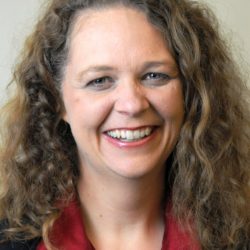
Beth-Anne Schuelke-Leech is an Assistant Professor at the John Glenn School of Public Affairs, The Ohio State University. Dr. Schuelke-Leech’s research is focused on the intersection of policy, finance, business, and technology. She investigates how public policy and financial structures influence innovation. Currently, she is conducting research looking at the effect of regulation on innovation in the nuclear power and financial services industries, as well as looking at how public expenditures and private finance interact in Innovation Finance. She is also the Project Leader of PolicyTALK at Ohio State. Professor Schuelke-Leech earned her doctorate from the School of Public Administration and Policy at the University of Georgia at Athens in 2011. She has extensive experience in engineering and business. She earned her undergraduate degree in Mechanical Engineering from McMaster University and a Masters of Business Administration from York University, both in Canada. Before undertaking doctoral studies, Professor Schuelke-Leech worked for over a decade as a professional engineer at General Motors of Canada and the University of Ontario Institute of Technology.
This panel will explore the connection between finance, public policy, and the economy. Public policies in the 20th century were reflective of two major ideologies of the role of government in the economy. The Keynesian interventionists supported public policies that explicitly promoted economic growth and prosperity, while the neo-liberal free market ideologues held that government intervention only deterred economic prosperity and individual freedom.
Policymakers and citizens struggle to reconcile the desire for policies that promote employment, economic prosperity, and social welfare, while limiting the cost and size of government. Many governments seem to be more beholden to financial markets than to their own citizens, while many citizens seem to believe that private finance should continue to provide funds for government expenditures that they want collectively, but are unwilling to pay for individually. Private finance and public policies both have a profound influence on a nation’s economy, employment, and social welfare. Both have undergone substantial changes in the past three decades. With many states struggling with increased borrowing costs, pressures from debt holders for fiscal austerity and structural changes, and increasing economic and social inequality, many are now questioning the role of finance and financial, and the ability of governments to support long-term economic prosperity and develop public policies that really meet the needs of individuals. Several important research questions arise from these changes: What is the role of government and public policy in the financial and economic health of a nation? What is the connection between private finance and public expenditures? How can economic prosperity be best achieved?
The purpose of this panel is to explore and reconsider the connections between finance, financial institutions, public policy, and the economy. Papers may consider: Public Policy and Economic Growth; Finance and Capitalism; Recent trends in Finance; Impact of Budget Cutbacks and Fiscal Austerity on the Economy; The Role of Financial Institutions in Society; Financial Regulation; and Financial Structures and Innovation.
Financial Participation and Profit Sharing
detailed info Wenzel Matiaske
Wenzel Matiaske

Wenzel Matiaske is Professor for “Leadership and Labour Relations” at the Helmut-Schmidt-University Hamburg and Research Professor a the German Institut of Economic Research/Socio Economic Panel (DIW/Soep) Berlin. His research interests include national and international patterns of employment, management and innovation, organizational theory and research methods.
 Simon Fietze
Simon Fietze

Simon Fietze is Research Associate at the Chair of Human Resource Management at Helmut-Schmidt-University since 2008. His primary research interest is in HRM and organizational behavior. Together with Wenzel Matiaske he has conducted a national survey study on nancial participation in Germany (2007-2009).
In the SASE Mini-Conference, we would like to discuss financial participation in an adequately broad and interdisciplinary way. We are particularly interested in questions such as:
- There is a great variety of financial participation schemes among companies. How do di erent forms of financial participation work? What are employers’ motivation introducing nancial participation schemes?
- In the economic and financial crisis, the discussion about goals and functions of employee financial participation became a new focus. Is financial participation a proper `trade’ for companies and employees during a global crisis? Do employee buy-outs provide a solution for companies in crisis?
- Social partners have a crucial role in introduction and development of employee financial participation. What are the positions and roles of trade unions and work councils on financial participation?
- During the socio-economic transformation the New Member States of the European had the chance to choose employee financial participation as an institution. Under which conditions did they follow this path and how did financial participation develop?
- `A Piece of the Cake for Social Justice’ is the slogan of an European initiative and platform to promote financial participation in Europe. Does financial participation address social justice?
- The relationship between financial participation and productivity has been a main focus among researchers, but have not been answered finally.
- Research on industrial democracy has a long tradition. Which role do worker-owned enterprises like Mondragon play in the discussionabout employee financial participation? What are their advantages and disadvantages?
Rethinking Islamic Finance: Markets, Firms and Institutions
detailed info Aaron Pitluck
Aaron Pitluck
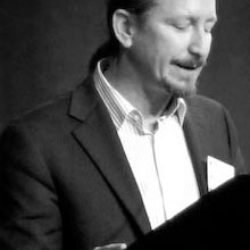
Aaron Z. Pitluck is an Associate Professor of Sociology at Illinois State University and a Visiting Scholar at the Department of Sociology at the University of Chicago (2015-2016). He is also serving as elected Vice President for the Economy and Society Research Committee of the International Sociological Association. His research investigates the intersection of finance and society. His current principal research project investigates financial innovation and social control inside Islamic investment banks, so as to better understand the potential and limitations of secular radical reform of financial markets. His previous research includes a series of articles on professional investors’ behavior in emerging markets. He has published essays in such journals as the Socio-economic Review, Economy and Society, and the Journal of Cultural Economy.
 Lena Rethel
Lena Rethel

Lena Rethel is Associate Professor in the Department of Politics and International Studies at the University of Warwick. Her research focuses on the interrelationship between finance and development and the emergence of alternative economies with a regional focus on Southeast Asia. Her recent books are: The Everyday Political Economy of Southeast Asia (Cambridge University Press, 2016fc, co-edited with Juanita Elias), Global Governance in Crisis (Routledge, 2015, co-edited with Andre Broome and Liam Clegg) and The Problem with Banks (Zed Books, 2012, co-authored with Timothy J. Sinclair). Lena is currently finalising the manuscript of her next book, provisionally entitled Capital Markets by Design. From Crisis Recovery to Islamic Finance in Southeast Asia.
The ongoing global financial crisis has reopened academic debates that question the everyday practices and knowledge bases of investors, financial firms, and regulatory bodies. It has also given new momentum to the search for alternatives to the existing global financial order. One such alternative that has been put forward is Islamic finance. Deriving its core principles from the jurisprudential body of knowledge known as the Sharia, Islamic finance has grown into a global, one trillion US dollar market, in competition with conventional financial markets, instruments and institutions. We invite contributions to expand our empirical understanding of this social phenomenon. Priority will be given to papers that use new empirical research to address social theory.
States within the Categories of Financial Stability
detailed info Benjamin Lemoine
Benjamin Lemoine

Benjamin Lemoine is a researcher in Political Science and Socio-Economics at CNRS, National Center for Scientific Research. He has been based at Paris Dauphine University (IRISSO) since 2013. Supervised by Michel Callon at CSI (Mines ParisTech), he developed a geneological approach to the French public debt problem through the analysis of quantification controversies and financing devices. He mobilizes a critical Science Studies and Technology (STS) approach in order to analyze the materiality of public debt. During a post-doctoral research at IFRIS (Université Marne-la-Vallée) and Sciences Po (CSO), he studied the increasing power of credit rating agencies in defining sovereign risk, policy choices and economic decisions. He is now currently working on the ways in which sovereign debt techniques shape economic and social policies, but also political entities such as states and cities. His current fieldworks include an analysis of public debt diplomacy and the politics of sovereign debt restructuration, but also the relationship between law and private finance, in Argentina after the State defaulted. He recently published L’ordre de la dette. Enquête sur les infortunes de l’État et la prospérité du marché, La Découverte, Paris, February 2016; “Dealing with the State. The Politics of French Sovereign Bond Transaction and Wholesaling”, Sociétés Contemporaines, December 2013; and “Measuring and Restructuring the State. Debt Metrics and the Control of Present and Future Political Order”, Chapter in Transforming European States, D. King and P. Le Galès, (eds.), Oxford University Press, (Forthcoming, 2016).
 Sabine Montagne
Sabine Montagne

Sabine Montagne joined CNRS as research fellow, at University Paris Dauphine, IRISSO (Interdisciplinary Research Institute in Social Sciences) in 2004, having worked previously for an investment bank in Paris for ten years and for a government economic agency for six years. Graduated from an engineering school (“grande école d’ingénieur”), l’Ecole des Mines de Saint-Etienne, in1986, she holds a PhD in economics from Université Paris-Nanterre (2003) and a “habilitation à diriger des recherches” (HdR, French exam after the PhD) in sociology from Université St Quentin en Yvelines (2017).
Her research examines the history of legal and organisational structures of finance. In her Phd, she focused on the Trust, the legal device used by US pension funds and showed how finance has appropriated his protection heritage. In that respect, Fiduciary capitalism does not mark the advent of a new compromise between wage-earners and capital but rather, a renewed form of the seizure of fiduciary power by institutional investors and a new stage in the history of capitalism.
After the thesis, she undertook advisory work for government institutions about investment policies of european long-term investors and the financing of ecological transition.
Her HDR comes back to the US financial history and examines how the financial professionals who claimed to be serving their clients’ interests and the political representatives who encouraged asset management expansion, since World War 2, have justified the change of investment norms and channelled the American economy towards an economic order that has today proven itself to be hostile to the middle classes.
This mini-conference seeks to explore the place of the state within the concepts through which financial stability is thought, represented and enacted as policy and practice by public and private actors. Although the concepts of financial regulation, of monetary policy and of professional financial practice all refer to some broadly defined commonly shared economic and financial theories, they are nevertheless produced and applied in concrete situations in a great variety of divergent and sometimes conflicting ways. In the current neo-liberal frame that officially inspires most financial regulation and financial theory, the role of states is to guarantee financial stability by ensuring the respect of the rules of “market efficiency”, i.e. the transparency in the access of “information” and the freedom and atomicity of “investors”. The category of “qualified” investors, which mainly designates the companies in the financial industry, singles out this industry as the locus where financial stability needs to be produced, enforced and protected. But the concepts with which this is grasped and performed come from a complex interrelation between regulatory, academic, legal and professional milieus, with some specific actors operating in many of them at the same time.







